Geraint Thomas Interview: Wales of a time
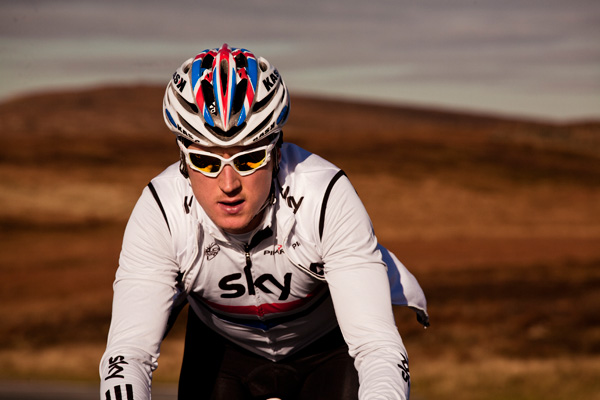
The British road race champion tells Cycle Sport about his incredible performance during the first week of the 2010 Tour de France, and looks forward to even better results in 2011.
Interview by Edward Pickering
Photos by Richard Baybutt
It’s a long way from Cheshire to Flanders, but there is a small part of the town of Alderley Edge, on one of Geraint Thomas’s regular training runs, that will be forever Flemish.
Just a few pedal strokes from the A34, where Thomas and his training partner Ian Stannard dodge lorries and digest coffees grabbed from their meeting point at the Rise coffee shop in Wilmslow, the steep cobbled climb of Swiss Hill clambers almost straight up the sandstone escarpment above the town. Its surface is classic Classics – a higgledy-piggledy and pitted lane of unpredictable cambers, oddly-shaped setts and mossy patches that rarely see the light of the sun. Take the wrong line, and just like on the Oude Kwaremont or Kapelmuur, your front wheel is wrenched towards the side of the road.
Swiss Hill is where Thomas trains and measures his form throughout the winter. It’s perfect training for the Tour of Flanders, where he made a strong debut this year. As the Classics approach, Thomas and Stannard will start to incorporate it into a short loop which will harden their legs for the rigours of Belgium. Up the climb, right at the top, descend, follow the road back round to the bottom of the climb, and repeat.
They’re not riding up it much at the moment, although Thomas has made an exception for Cycle Sport, which he might be regretting. He only started training about a week ago, after a long break.
Get The Leadout Newsletter
The latest race content, interviews, features, reviews and expert buying guides, direct to your inbox!
“Physically, I don’t feel the best,” he admits.
Thomas pauses as he recalls not only riding up at less than optimum speed, but having to turn around and do one stretch a few times for Richard, the Cycle Sport photographer, while Stannard watched, bemused.
“I felt really sluggish,” he adds.
What’s sluggish for Geraint Thomas is fairly brisk for the rest of us, however. He rode a steady cadence in a 42 chainring up the climb. If that’s sluggish, we can’t wait to see fast.
Golden generation
We’re blessed with a golden generation of British cyclists right now – a group of riders with talent, results, potential and personality. Mark Cavendish is the best sprinter in the world. Bradley Wiggins, notwithstanding a disappointing July this year, must still be thought of as a Grand Tour contender. David Millar, on his day, is one of the top two or three time triallists in the world, plus one of the most experienced and respected road captains. And in Geraint Thomas, Britain has a budding Classics star, a brilliant time triallist and all-rounder who came within a few kilometres of wearing the yellow jersey at the Tour de France this year.
Each has got their own schtick, too. Cav’s the confident, gobby one, who talks and thinks as fast as he sprints. Brad’s the funny one, with an undertone of attitude – pity his teachers. Saint David of the Second Chance is the reformed cheat, the conscience of cycling and articulate philosopher of racing.
And Thomas? He’s not like the others. He’s a listener, not a talker. He’s less a provider of memorable quotes than some of his peers, and as laid back as a customized Harley Davidson. It may be a defence mechanism – by pretending not to care, Thomas deflects pressure but also responsibility. Maybe, alternatively, that’s just the way he is.
But here’s the thing about Geraint Thomas: he may be quiet, but he’s a killer.
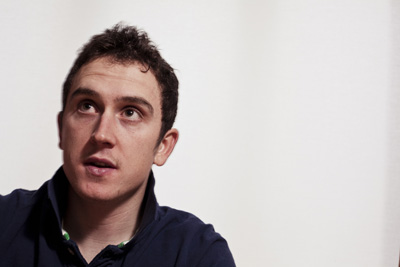
Breakthrough
2010 was a breakthrough season for Thomas. He won the British championships, rode a stunning Tour de France and performed strongly at the Classics and Dauphiné. It seems wrong to describe a rider who has won an Olympic gold medal and still has the fifth-fastest time ever recorded in the individual pursuit (the third best, if Chris Boardman’s times set using the banned “superman” position are discounted) as making a breakthrough, but over the course of one week in July, Thomas combined a purple patch of well-timed form with a mastery of circumstances and lifted himself up to second overall at the Tour de France for four days. Then, as the race climbed into the Vosges, he found himself yellow jersey on the road, just falling short of taking it outright as he faltered in the last few uphill kilometres to Station des Rousses.
“Coming to the Tour, the Prologue was my goal,” Thomas tells Cycle Sport.
“When I first went to the Tour [in 2007], the whole thing was a novelty, a gift, really. This year, it was a target and I went there a lot more ready.”
Before the race, Thomas confided to his girlfriend Sara that a place in the top 10 would be going well. Top 15 would be realistic.
Thomas rode in the same rain at Rotterdam that had ruined Bradley Wiggins’s Prologue. But as if to prove that bike racing happens as much in the head as the body, Thomas was able to block out whatever slowed Wiggins, and rode to an incredible fifth place. He was 23 seconds behind Fabian Cancellara and 13 behind Tony Martin. But third place, in the form of David Millar, was only three seconds away, and Thomas ended the day sandwiched between nine Tour de France wins – Lance Armstrong beat him by a second, while Alberto Contador ceded four seconds to the Welshman.
“The plan at the Tour was that I was allowed to go for the Prologue. That was my bit of individual glory. Then I’d switch to the team.”
Thomas knew that the rain had probably cost him third place. Third place in the Tour de France.
He may have been looking back at 192 of the best riders in the world, but now, in theory, Thomas was on domestique duty. However, circumstances and fate continued to smile on the Welshman.
Three days later, Thomas lined up for the cobbled stage to Arenberg, looking forward to helping Wiggins gain time on his rivals. Spending a few days in fifth place had been nice, but it was no longer a priority to protect his own position.
There had been a lot of pub debate about the cobbled stage – large time gaps were anticipated, owing to the reputation of the roads from Paris-Roubaix. But it has to be remembered that the Tour peloton is not the Paris-Roubaix peloton. In Paris-Roubaix, broad-shouldered Belgians barge their way to the front and the weak don’t last long. At the Tour, there just aren’t as many Classics riders – while riders were still bouncing off each other, and crashes caused a predictable level of carnage, the playing field was levelled a little. Plus, Thomas has previous on the cobbles. He won the junior Paris-Roubaix – he and Ian Stannard were away, and Stannard turned the wrong way into the velodrome leaving Thomas to a solo win.
Sure enough, when Frank Schleck crashed, Thomas was positioned near the head of the race. He swerved around Schleck, sprinted to join the riders in the lead, and suddenly found himself right at the head of the race. The Tour was being decided around him.
“We hit that section, and the big crash happened right in front of me. I managed to weave around Schleck, and could see the group just in front. I gave it full gas and got across,” he says.
“At the end of the section, I turned around, and there was nobody behind.”
Thomas was now in a group comprising Thor Hushovd and Fabian Cancellara – two of the strongest cobbles riders in the world. Plus Cancellara’s team mate Andy Schleck and world champion Cadel Evans. With Ryder Hesjedal alone, but not far ahead, Thomas would be one of half a dozen riders to contest the finish almost a minute ahead of the next group. Of those other five, only Cancellara was ahead of him overall.
But Thomas still didn’t ride. While Andy Schleck repeatedly asked him to contribute to the pace-setting, the Welshman’s priority was still Wiggins, 40 or so seconds behind in the next group. It was Sean Yates, in the team car, who overrode Sky’s Plan A that day, and informed Thomas he’d be going for the stage win.
Over the last, toughest section of cobbles, at Haveluy, Thomas experienced a moment of clarity that will stay with him for the rest of his life.
“I was on the wheels of Cancellara and Hushovd, and they were drilling it. But I got into a rhythm, and I had a moment to soak in the atmosphere,” he says.
“I could see the Welsh and British flags. I heard my name being shouted, there was the noise of the helicopters and motorbikes. The dust.
“I got goosebumps as I rode that last section. You dream of days like that. I felt good, I wasn’t there by luck.”
And then he says something which reveals a lot about the character of Geraint Thomas: “That selection was the real hard men, wasn’t it?”
With Hushovd in the group, a stage win was going to be complicated. With a block headwind down the finishing straight, and Cancellara happy to lead in, the better to gain time for Andy Schleck, the stage win was almost out of the question. Thomas decided discretion was the better part of valour, and rode for a guaranteed second place, rather than gambling for first and possibly coming fifth or sixth.
“Block headwind? No chance,” he says ruefully.
“And I couldn’t attack early because Cancellara was riding at 55 kilometres per hour on the front.”
Second place on the stage. Up to second overall. Thomas was wearing the white jersey. It had been a good day.
Incredible journey
It’s hard to know if Thomas really appreciates just what an incredible position he was in, through that first week of the Tour. Thomas himself is the kind of person who’ll stretch, scratch the back of his head, and inform you that yes, it was a good result for him and the team.
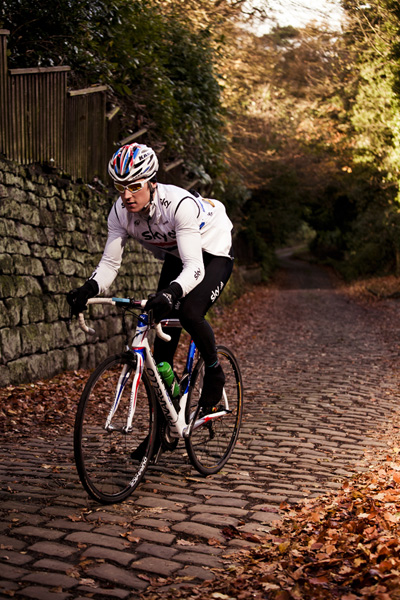
Perhaps it’s his background on the track, and his development through British Cycling which flattens the highs and smoothes off the edges of the lows. Many of BC’s most successful riders have a matter-of-fact attitude to world domination, born of supreme confidence in themselves and the system.
“Immediately after, and in the evening, you’re happy. It’s like, yeah, that’s really good,” he says.
“But as soon as you go to bed, you wake up the next day and there’s the plan for the team. It’s forgotten.”
Cycle Sport is incredulous that second place – second place! – in the Tour de France can be so neutrally described.
Look, he says, a lot of the time he goes with the flow. The most important part of his self-perception is that he is laid back. “I’m not too bothered if it’s chicken, or it’s fish,” he says.
But this isn’t incompatible with being a killer. Thomas may not be demonstrative off the bike, but on it, he loves the fight, loves hurting people, loves hurting himself, with an intensity that is unnatural. “I like,” he says wistfully, “putting people on the rack.”
It took a moment speaking to Sara’s dad a few days later to give Thomas an epiphany. “He said to me, ‘You’re going to bed second in the Tour de France,’ and suddenly, I thought, f*ck, I am, aren’t I?” Thomas says.
“I hadn’t really thought about it. Obviously I knew I was second, but I’d put out of my mind how big the race was and what I was. I’d been dreaming about the Tour since I was a kid. And I was sitting 20 seconds off the yellow jersey.
“I remember when I was young, I’d run home from school to watch the Tour on Eurosport, and at the end of the race they’d show the top 10 running down the screen. My name was on that list.”
Chinese whispers
Being on the Tour de France is like participating in the world’s biggest game of Chinese Whispers. Rumours, gossip, chat and bullshit fly around the start village from person to person, from language to language, from rider to journalist to colleague to manager to soigneur to journalist in an endless circle.
Sometimes the Tour buzz is around a certain event or result. Other times the buzz is anticipatory. On the morning of Saturday, July 10, the buzz centred around Geraint Thomas. The English language press pack were discussing the likely wearer of the yellow jersey at the end of the day, at the top of the climb to Station des Rousses, and thinking, it could be a Sky rider. Some riders nodded knowingly, and said that the climb wasn’t a Fabian Cancellara climb. But it might be a Geraint Thomas climb. Jonathan Vaughters tweeted his admiration for the Welshman: “My guess – Geraint Thomas”
But Thomas himself was still in domestique mode. It was only when Cancellara was dropped on the third last climb of the day that it dawned on him that the yellow jersey was within his grasp. Lance Armstrong rode up to him and told him he could take the yellow. “I was, like, you reckon?” Thomas laughs in disbelief.
His legs felt good up the second last climb, and going down the descent, with only the climb to Rousses to come, he still felt good. His team leader Wiggins implored him to forget about him and try to stay with the leaders.
“I heard on the radio that Cancellara was dropped. I started saying to myself, man this could really happen. Brad said, just hang in there, you can do it.
“But, at the bottom of the climb, I don’t know, I just started feeling a bit blowy. Arms a bit fuzzy – like, a jelly, fuzzy thing. You know when your legs go a bit warm. You just feel…you know it’s going to come,” he recalls.
Thomas made it up the steeper section at the bottom of the climb, but was distanced in the last eight, draggy kilometres. He’d been yellow jersey on the road, but at the end of the day, he wasn’t even the white jersey any more. Andy Schleck had taken it over.
That week was the highlight of Sky’s Tour. And when Wiggins faltered, people hardly remembered how close Thomas had been to leading the race. Thomas’s own memories of the race are similarly coloured by what happened subsequently, with Wiggins below par in the mountains and Sky seeming not to know what to do about it.
“I was disappointed for Brad. We had hope and faith that he was just having a bit of a rough patch.”
Cycle Sport asks for clarification: Hope, or faith?
“Both, really. I know how hard he had worked. Everyone expected him to do something, especially as he’d come to Sky where we do things another way. Everyone expected great things, and when they didn’t happen, he thought he’d let everyone down, us and the British public,” Thomas continues.
“The team learned quite a bit from that. We did the same thing at Barloworld with Soler at the 2008 Giro - he'd crashed and broken a bone in his wrist early but stayed in the race and we were constantly looking after him. He ended up pulling out around stage 10, by which time a lot of the guys were pretty knackered,” Thomas recalls.
“We kept all our eggs in one basket, even though we could see it falling apart. But we stayed there instead of branching out and trying to go for a stage. I don’t know why it went like that, but that’s the way it went.”
“It wasn’t nice – you get bad press. Even when it’s deserved, it still hurts a bit. It’s like, your brother was really drunk and made a pratt of himself, but it’s still not nice when somebody tells you it. You’re allowed to say it about your brother, but somebody else isn’t.”
“With Brad, I think people have realized that so much hype isn’t good for the team,” Thomas reflects.
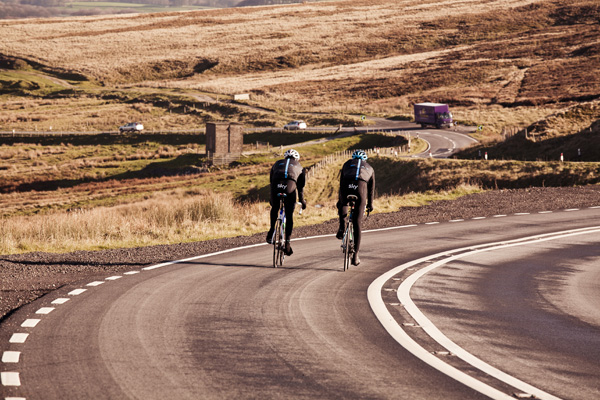
Don’t be fooled by how laid back Geraint Thomas is. His ambition is like solid bedrock, and he has a lot of confidence in his abilities. Perhaps that’s why he ploughed through the rain in Rotterdam to finish fifth, while Wiggins, less sure of himself, faltered. He’ll phone up BC’s psychiatrist Steve Peters for a pep talk every now and again, but he doesn’t really do self-doubt. And just as we are coming to the end of our interview, Thomas says that he is ready to start thinking like a team leader.
“I’m competitive. I want to ride the Classics and the Tour and get up there,” he explains.
“In the team pursuit, we are a team, but you always get a guy who is the head of it. It’s me and Ed Clancy – when we say things, people tend to agree it makes sense.
“It’s in there, ready to come out.”
This interview first appeared in the January 2011 edition of Cycle Sport.
Follow Cycle Sport on Twitter: http://www.twitter.com/cyclesportmag

Thank you for reading 20 articles this month* Join now for unlimited access
Enjoy your first month for just £1 / $1 / €1
*Read 5 free articles per month without a subscription

Join now for unlimited access
Try first month for just £1 / $1 / €1
Edward Pickering is a writer and journalist, editor of Pro Cycling and previous deputy editor of Cycle Sport. As well as contributing to Cycling Weekly, he has also written for the likes of the New York Times. His book, The Race Against Time, saw him shortlisted for Best New Writer at the British Sports Book Awards. A self-confessed 'fair weather cyclist', Pickering also enjoys running.
-
 FDJ-Suez, SD Worx-Protime, Lidl-Trek confirmed for Tour of Britain Women as strong list of teams announced
FDJ-Suez, SD Worx-Protime, Lidl-Trek confirmed for Tour of Britain Women as strong list of teams announced18 teams set to take part in four-day WorldTour stage race
By Tom Thewlis
-
 Cyclists could face life sentences for killing pedestrians if new law passed in England and Wales
Cyclists could face life sentences for killing pedestrians if new law passed in England and WalesReckless cycling currently carries a maximum two-year jail term
By Tom Thewlis
-
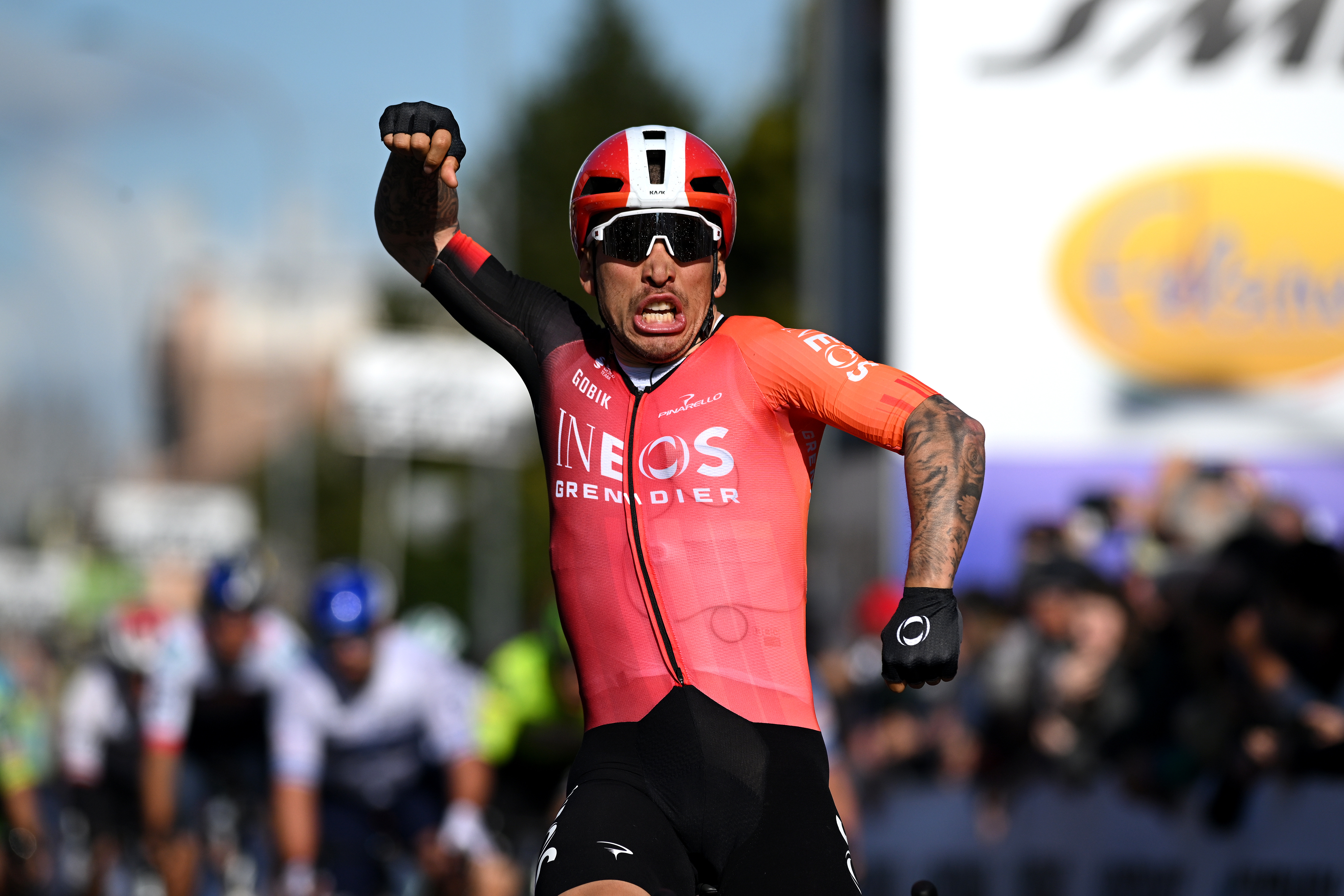 'It can really push me along' - How a velodrome comeback is making Caleb Ewan faster on the road
'It can really push me along' - How a velodrome comeback is making Caleb Ewan faster on the roadAustralian says he'll "definitely" continue track work after rekindling passion
By Tom Davidson
-
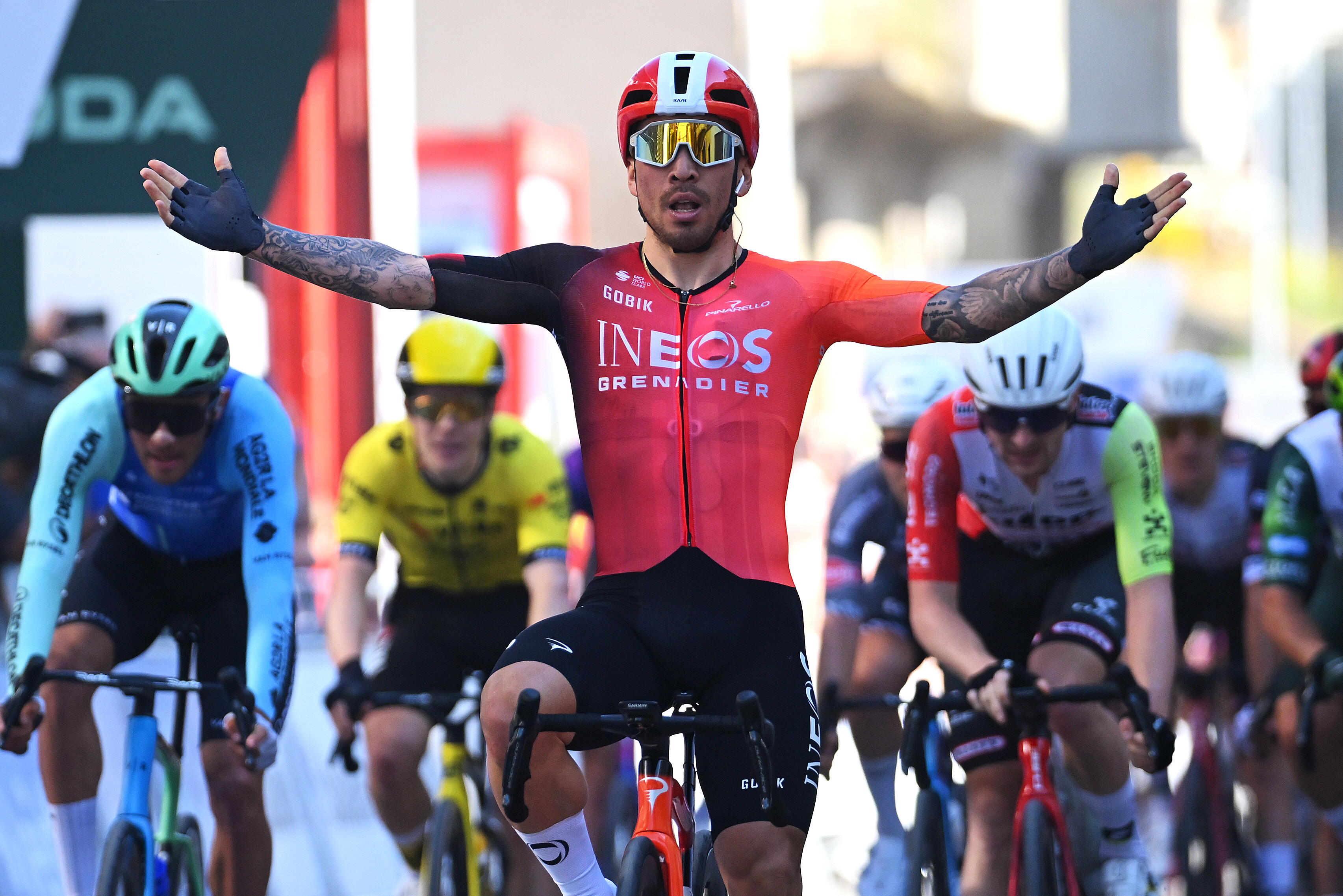 Could Caleb Ewan be Ineos Grenadiers' first Tour de France sprinter since Mark Cavendish? 'That's my goal'
Could Caleb Ewan be Ineos Grenadiers' first Tour de France sprinter since Mark Cavendish? 'That's my goal'"All I can do is try to win as much as possible and prove that I deserve to be there," says Australian
By Tom Davidson
-
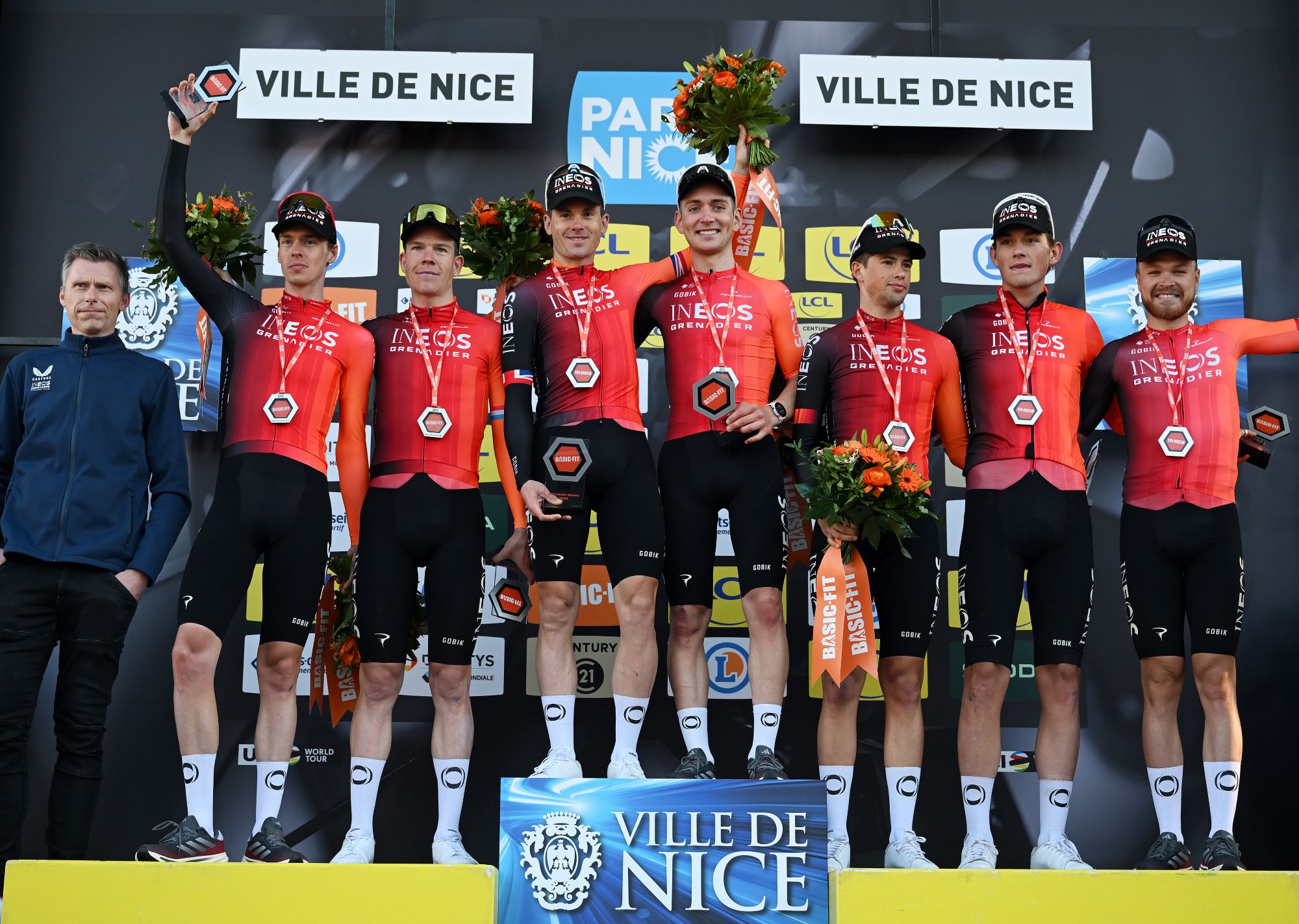 'An unprecedented opportunity for brands to be part of the evolution' - Ineos Grenadiers sponsor hunt steps up with sales agency partnership
'An unprecedented opportunity for brands to be part of the evolution' - Ineos Grenadiers sponsor hunt steps up with sales agency partnershipSportfive have been employed to find "non-endemic global partners for the team"
By Adam Becket
-
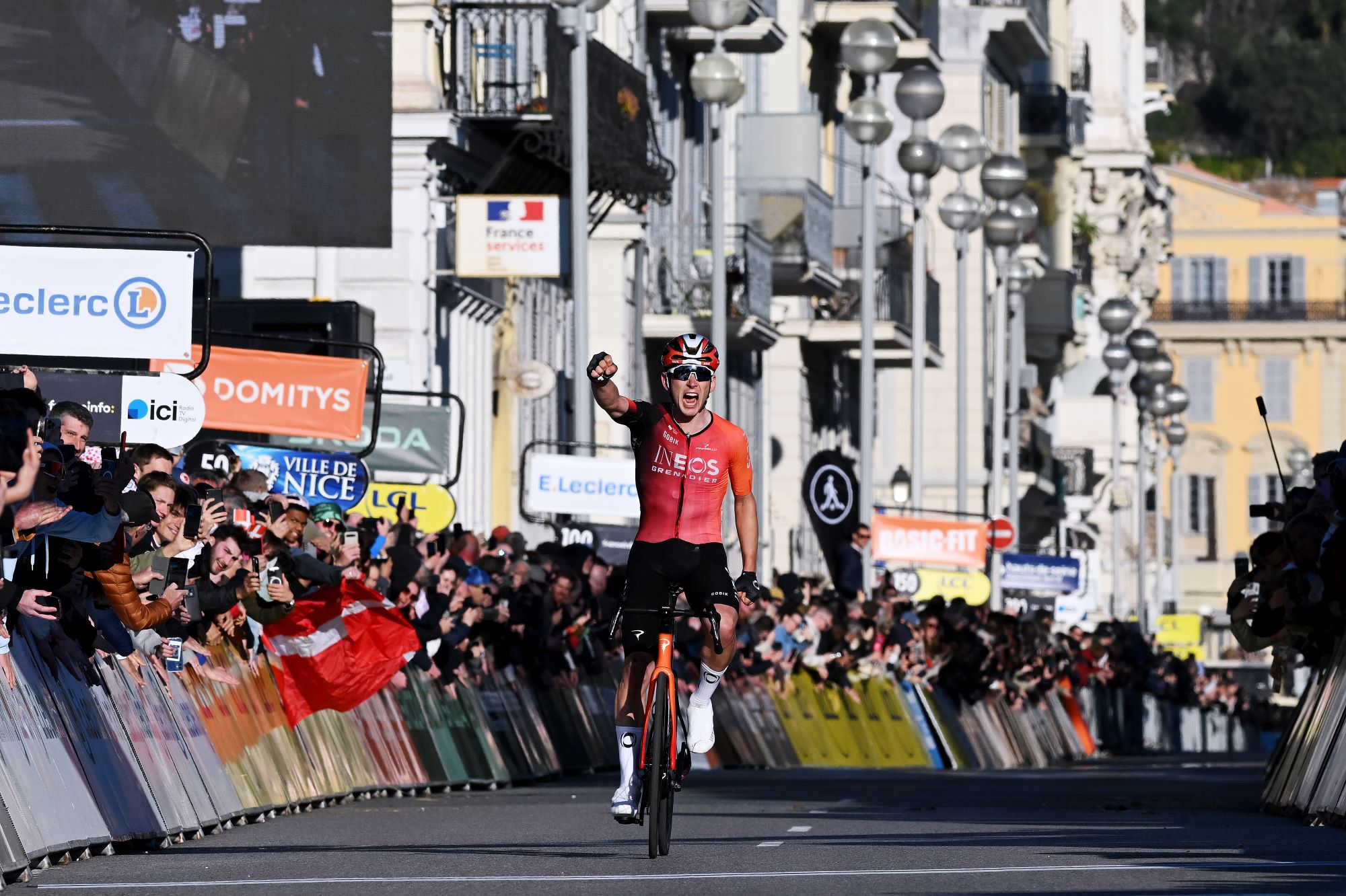 'We've all got a little bit extra in us this year' - Ineos Grenadiers recapture 'fighting spirit' with aggressive Paris-Nice display
'We've all got a little bit extra in us this year' - Ineos Grenadiers recapture 'fighting spirit' with aggressive Paris-Nice displayBritish team continue to put tumultuous 2024 behind them with momentum and a new found mentality
By Tom Thewlis
-
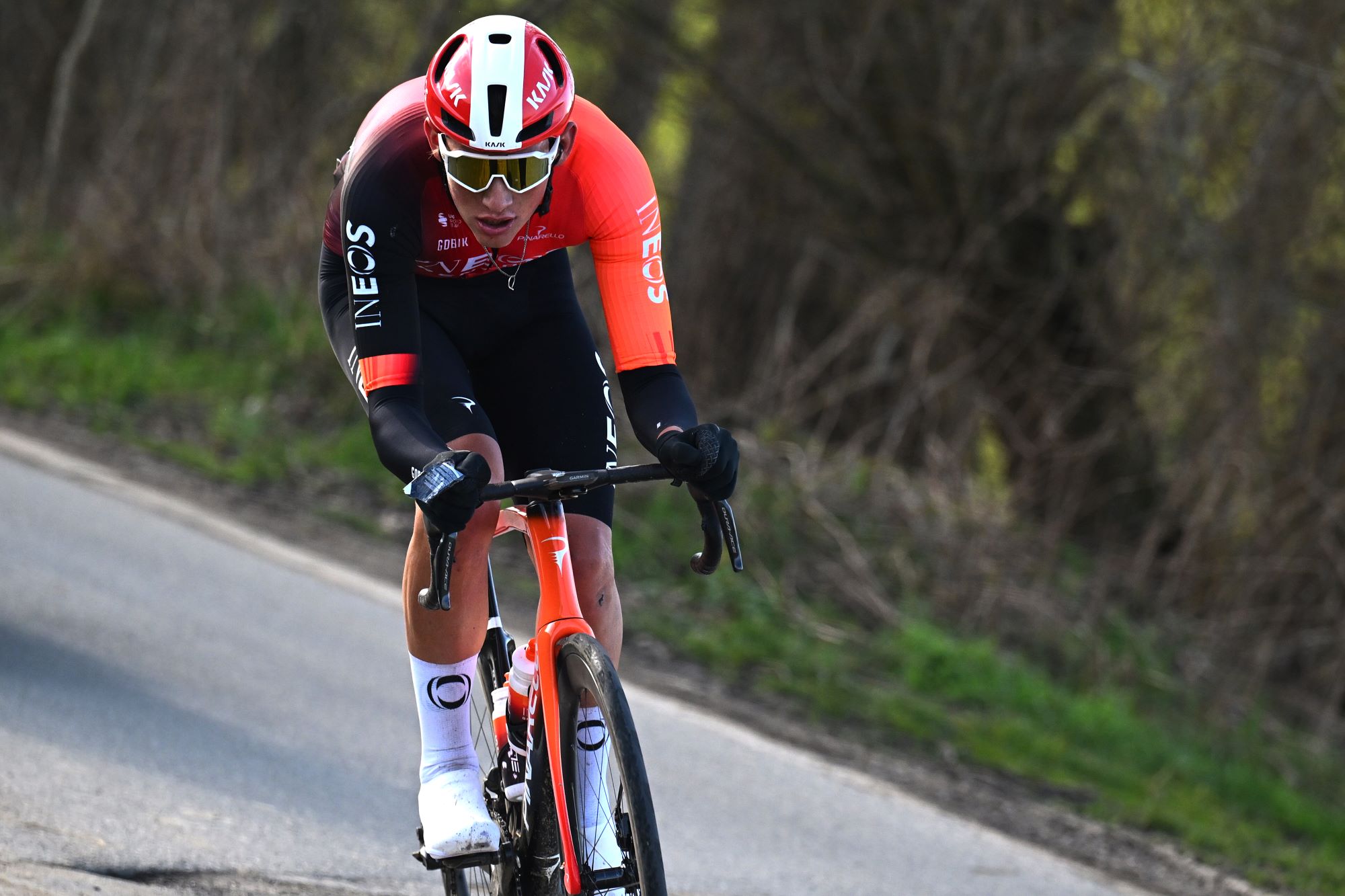 Could a TotalEnergies deal be the end of Ineos Grenadiers as we know them?
Could a TotalEnergies deal be the end of Ineos Grenadiers as we know them?Reports suggested this week that Ineos could be close to signing a deal with the French petrochemical firm
By Tom Thewlis
-
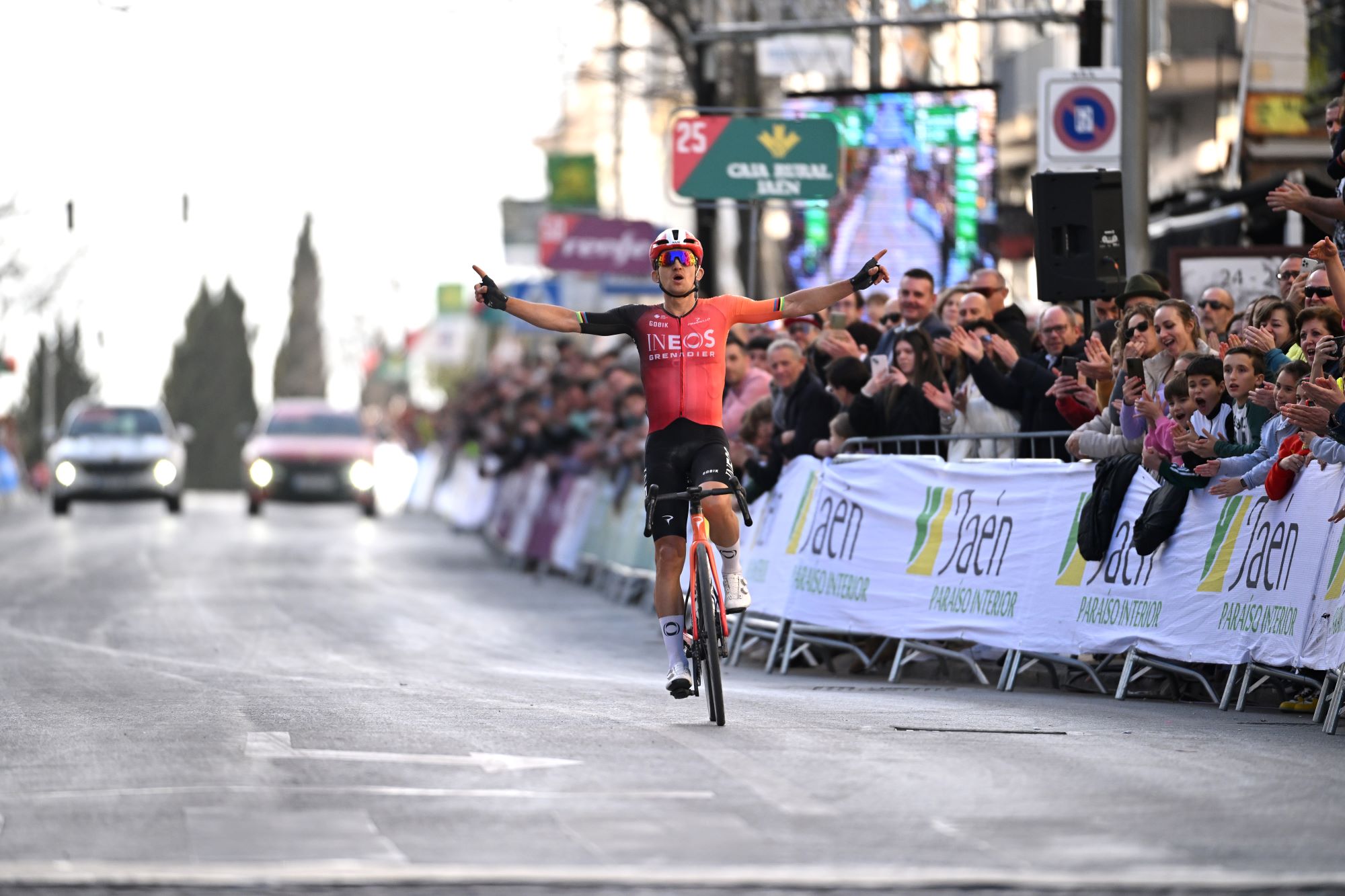 'They’re racing with their hearts again' - Robbie McEwen on Ineos Grenadiers' bright start to 2025
'They’re racing with their hearts again' - Robbie McEwen on Ineos Grenadiers' bright start to 2025The British squad have already won four times in 2025
By Tom Thewlis
-
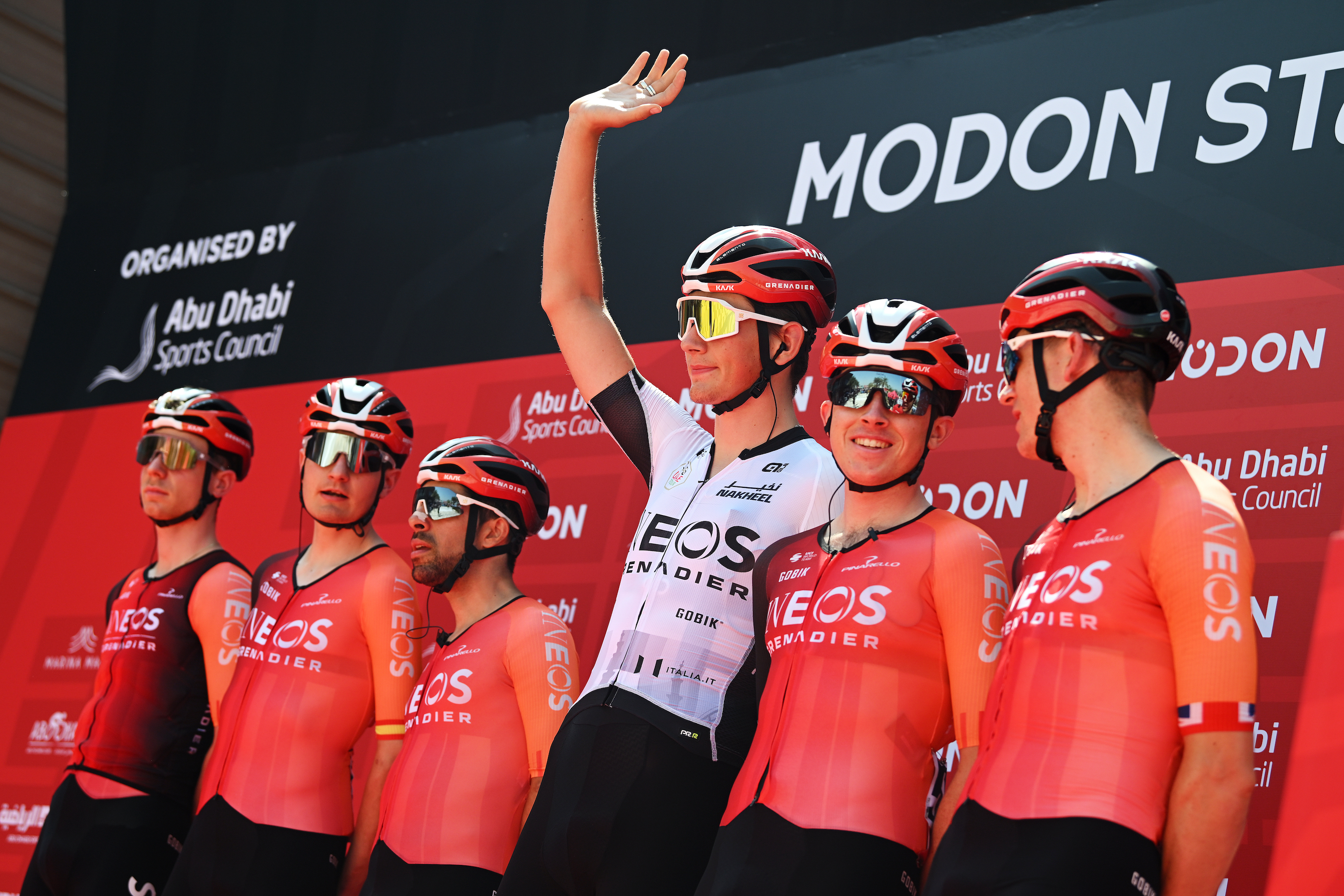 Ineos Grenadiers are entertaining so far this year, but how long will it last?
Ineos Grenadiers are entertaining so far this year, but how long will it last?The British WorldTour squad have won four times already in 2025, but more than that, they have been fun. Is this the new dawn?
By Adam Becket
-
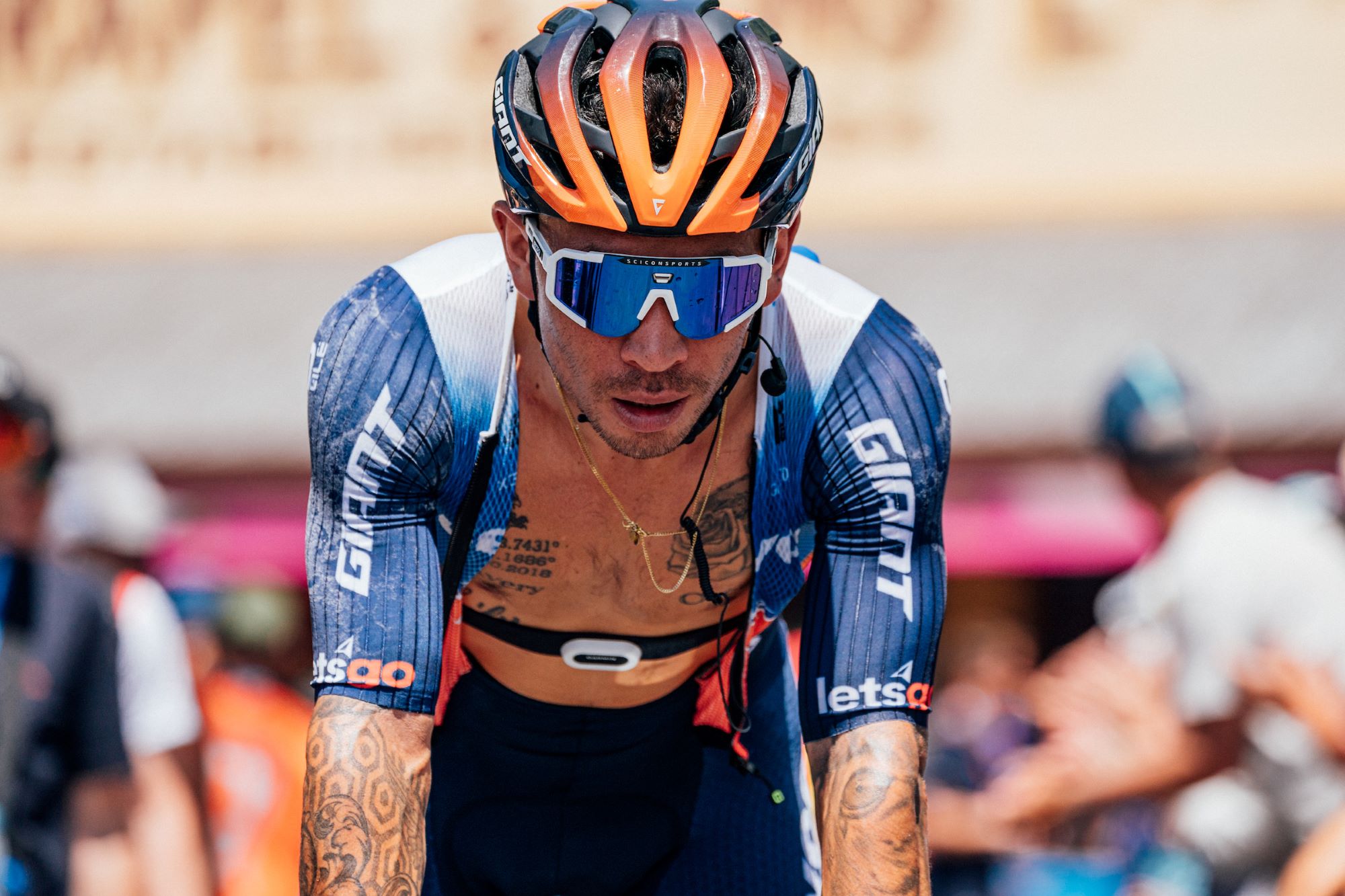 Caleb Ewan says he was put in a 'bad situation' by Jayco AlUla before he joined Ineos Grenadiers
Caleb Ewan says he was put in a 'bad situation' by Jayco AlUla before he joined Ineos GrenadiersEwan joined Ineos Grenadiers in January after spending just one year with Jayco AlUla
By Tom Thewlis